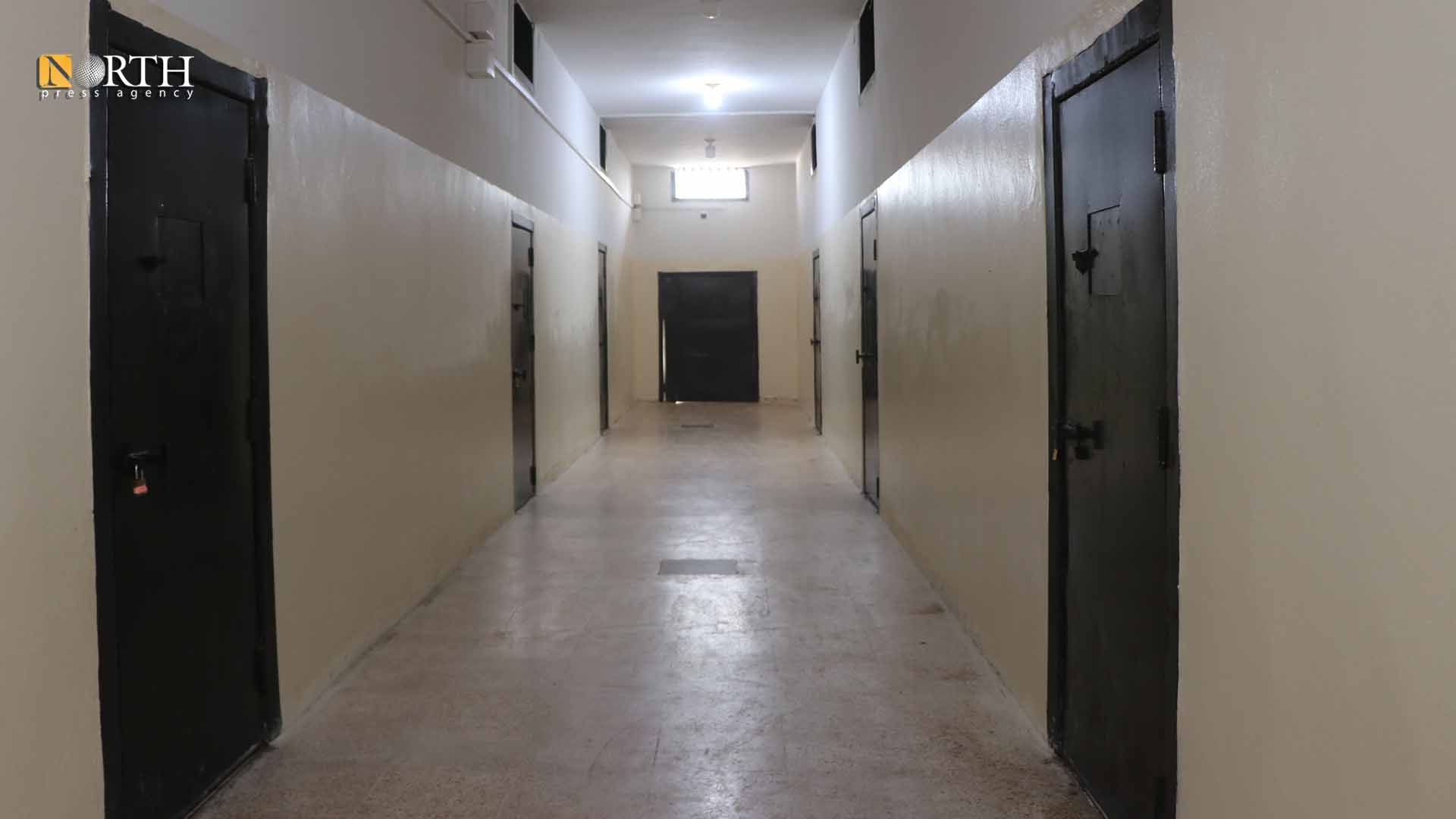HASAKAH, Syria (North Press) – Alania Ali, a spokeswoman for the central prison for women members of the Islamic State (ISIS) in Hasakah, northeastern Syria, said they face great difficulties in securing the female prisoners’ needs for medicines, water, nutrition, and others due to the limited capabilities of the Autonomous Administration of North East Syria (AANES).
In an interview with North Press, she pointed out that the bad conditions in NE Syria due to the siege imposed on it, in reference to the to the closure of Tel Kocher (al-Ya’rubiyah) border crossing, prevents the provision of adequate food and medicine to women and their children in prison.
In 2020, the Women’s Protection Units (YPJ) affiliated with the Syrian Democratic Forces (SDF), in cooperation and coordination with the Global Coalition, established a special prison for the ISIS women who committed terrorist acts or murder in Hawl camp, east of Hasakah, or tried to escape from the camp.
The prison currently houses dozens of ISIS women, along with their children, most of whom are immigrants.
The children of the prisoners are sent in the daylight to Halat Center in Hasakah city to receive lessons in mathematics, Arabic and English, in addition to music, drawing and sports activities, where they spend eight hours.
“The quantity of water we receive doesn’t cover the prisoners and their children’s needs, in addition to skin diseases caused by lack of hygiene,” Ali noted.
The lack of nutritious food caused the spread of malnutrition, malabsorption and other health problems among women and children.
The prison needs a medical center in order to provide health services to female prisoners and children, according to the prison’s administration.
The SDF, in coordination with the Global Coalition, have detained thousands of ISIS members and leaders in several prisons in northeastern Syria, since the elimination of ISIS in its last strongholds in the town of Baghouz in Deir ez-Zor countryside in March 2019.
About 2,448 ISIS families, militant’s wives with their children, live in Hawl camp, in addition to the Syrian IDPs an Iraqi refugees.
Officials of the AANES say the closure of the al-Ya’rubiyah crossing has caused a great burden on the AANES in terms of the shortage of aid delivered to camps.
Many countries refuse the repatriation of their nationals from Hawl Camp without revealing any reasons.
Ali appealed to the Global Coalition and organizations to provide the necessary logistical support for the prison and establish health centers in order to provide full care for female prisoners and their children.
In June 2021, the SDF Commander-in-Chief, Mazloum Abdi, addressed the meeting of the Global Coalition to Defeat ISIS saying, “To ensure a sustainable victory, we must not forget that tens of thousands of women, children and ISIS fighters are still in camps and custody centers in northeast Syria.”
Abdi called on the Global Coalition to help return these people to their countries of origin, support education and counter extremism programs, as well as support stability and economic recovery in liberated areas to address the root causes of extremism.
During the annual meeting of the military councils in the city of Hasakah with the attendance of officials of the SDF and the Global Coalition, in August 2021, Abdi stated ISIS still forms a major threat, and that projects of AANES should be supported so that they can reach an ultimate defeat against ISIS.

